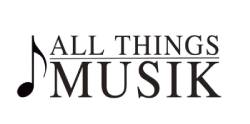recital
Music Recitals and Performance Opportunities: Top 5 Reasons to Perform
Music Recitals and Performance Opportunities: Top 5 Reasons to Perform
By Emily Kline
When I get a call from a parent about music lessons many times they ask about performance opportunities. Whether your music instructor offers piano, voice or guitar lessons, performing for an audience can have many positive results. Here are some top reasons to participate.
1) It teaches the value of goal setting and achievement. As you start your lessons, work closely with your teacher to understand their style and experience with performance opportunities. Set some goals to work toward that will challenge you but not cause anxiety. Break down the goal into bite size pieces especially regarding the piece’s tempo, emotion and touch. Allow enough time to master the piece, particularly if you’re memorizing it, but don’t have so much time you’re tempted to procrastinate.
2) It builds confidence. As you successfully perform in front of others (who are all pulling for you), you’ll have the confidence to perform again. This confidence is transferable to other areas of life such as public speaking and school presentations, job interviews and networking, as well as the many impromptu times at home and work where you need to express opinions. Evaluating your performance with your teacher afterwards is also a key part of building confidence. When performing a piece, perfection is difficult but achievable, so graciously accept praise from others without deflecting it by highlighting minor mistakes (which most people miss anyway). If your performance was less than perfect and especially if mistakes were obvious, move on and learn from them with the help of your teacher. Shifting your practice plan to address mistakes is common and ultimately builds confidence.
3) It sets a good example. Other students with less skill observe students at a performance opportunity and walk away inspired. When you perform, you’re setting a positive example for them. Many musicians use the memory of better prepared and talented peers to practice longer and with more focus. It may take years for you to discover (or you may never know) the impact you had on someone.
4) An important life experience. The old adage “practice makes perfect” holds true with performance experience. Each of your past performances was essentially practice for the next. These principles are transferable to other areas of your life such as relationships, employment, service, and other hobbies. The more you perform, the easier it becomes. Your teacher will challenge you to not only perform in comfortable surroundings but to consider competitions and opportunities to showcase your rapture in large audience settings. You’ll be able to draw upon the past successes to help encourage and prepare you for new performances. Watch past recordings of your performances and record your practice sessions. Your self-evaluation and teacher evaluation will help identify areas to improve.
5) Rewarding for family and friends. It’s very likely that family and friends want to experience your performance. Private performances at family gatherings or at someone’s request are good to do because they are often impromptu performances. Showcasing your talents at more formal opportunities in front of family and friends is often an occasion that can mean a great deal to your own family. For decades, my husband’s grandmother attended many of her grandchildren’s music recitals, school concerts, and other performances at nursing homes and church services. She kept the printed programs for her scrap books and to show others (she was known for hoarding extra copies to mail to distant relatives). Think of the smiles and applause of friends and family as motivation to push through the occasionally tough practice session.
Of course there are other good reasons to perform in front of others. As you prepare for your next performance, partner with your teacher on all aspects to make it a positive experience in your musical journey. It’s likely you’ll have multiple teachers over the course of time so learn from each of them. Little details about the venue, attire, manners, dry runs, positive thinking, sheet music and much more will build confidence and make the experience one you’ll want to repeat for yourself and others who support your musical journey.

